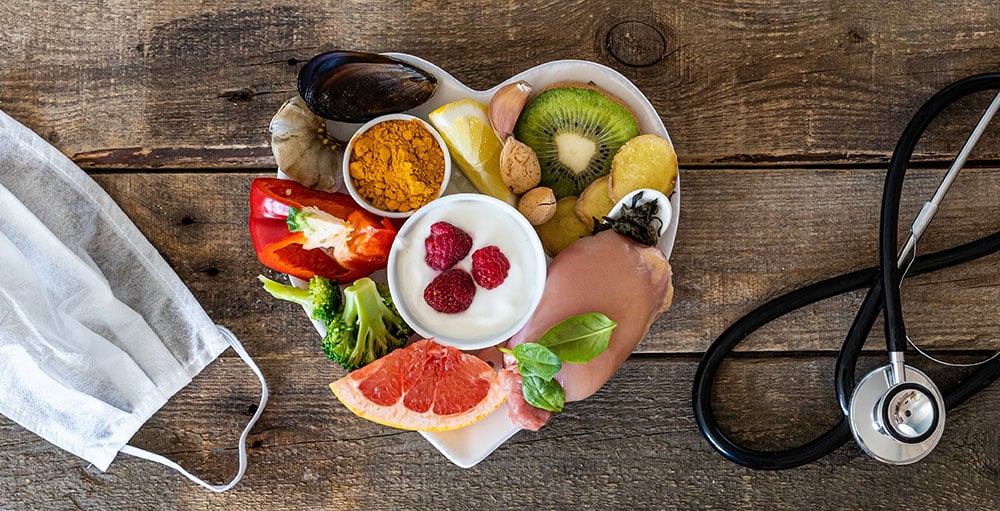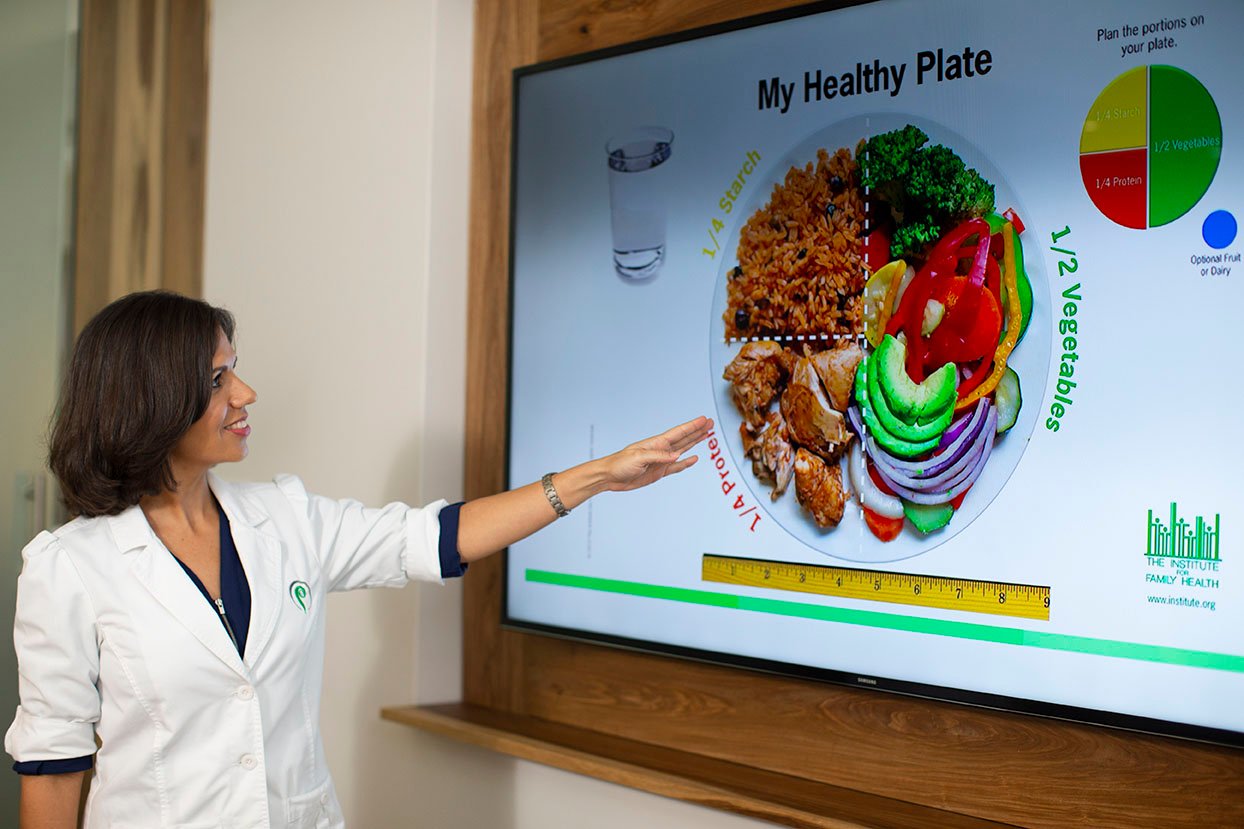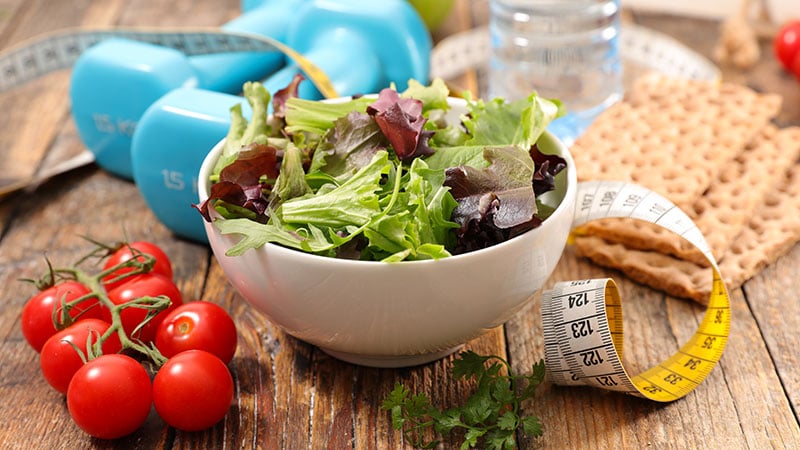When we face challenges to our health or a global health crisis like the current pandemic, we tend to experience a state of alertness. With this comes a search for treatments and remedies to strengthen our system and protect ourself from disease. Our immune system is our first line of defense, and there are many simple actions we can take to set it up for success.
How does the immune system work?
The main function of the immune system is to defend the body against disease. It is a system in every respect; it’s composed of various organs and interconnected parts: white cells, antibodies, bone marrow, spleen, thymus and the lymphatic system. These cells and organs work together to destroy pathogens, like viruses and bacterias, that get into our bodies.
We are being attacked constantly by an infinite number of bacterias and viruses and we don’t even realize it because our immune system is defending us daily. But, when the function of the immune system is compromised, we inevitably face illness.
The immune system is our army, and its soldiers are the white cells and the antibodies. We rely on these potent protectors to mount a defense in just hours or days to destroy any invader, such as a virus. Therefore, it’s our responsibility to provide our system with the correct tools it needs to function properly. Sometimes, because of our lifestyle, eating habits and/or high stress levels, our immune system will weaken and need external help.
What can we do to keep the immune system functioning at an optimal level?
It's important to emphasize that caring for our system should be a daily practice, as opposed to a focus solely when we are threatened by disease. The care and attention we give to our system isn’t made up of any single act, but rather a holistic approach that includes:
- A balanced diet with a diverse selection of fresh foods
- High quality supplements *before you begin to take any supplement it’s important to consult with your doctor
- Sufficient sleep and rest - about 7-8 hours per night
- Daily exercise or movement - the recommendation is 30 minutes of exercise, 5 days a week. While exercise can improve immunity, overdoing it has a reverse effect, so during this time you can focus on a moderate activity level.
- Staying hydrated by drinking enough water - the general recommendation for men is 3 liters per day and for women 2 liters per day
- Keeping stress levels low - practice meditation every day, laugh, play and keep direct contact with nature as much as possible
To help support your efforts, here’s list of foods, supplements and herbs that will help you keep your system and overall health at an optimal level.
Food is Medicine
- Bone broth sourced from grass-fed animals promotes a healthy gut and reduces inflammation caused by leaky gut syndrome. Collagen and amino acids (L-proline, L-glutamine, L- arginine) that we find in bone broth help to repair the lining of the large intestine. Approximately 80% of our immune cells are found in the gut, so maintaining healthy intestines will support your overall immune health.
- Garlic and onion are plants form the genus “Allium sativum” have a phytonutrient called allicin that has antiviral, antibacterial and antifungal properties. In addition, they have fiber and prebiotics that feed the good bacteria in the gut. You can eat them raw or cooked, so add garlic, onion, leeks and chives to your meals and enjoy them daily.
- Ginger is believed to help eliminate toxins accumulated in our organs. It also aids in cleansing the lymphatic system, which helps us get rid of toxins and waste. Furthermore, ginger has anti-inflammatory effects. Studies show that ginger is a potent antimicrobial agent, which means it can help treat infectious diseases.
- Green tea is an antifungal and antiviral agent. Catechins contained in green tea have antioxidants and immunomodulating properties. Studies suggest that the phytonutrient “epigallocatechin gallate” (EGCG) has protective effects against some bacterias, breast cancer and digestive issues. You can enjoy green tea daily as a low caloric beverage, but because of its caffeine content it’s important to be conscious of a moderate intake, especially if you are sensitive to caffeine or suffer from a health condition that requires a limited caffeine intake.
- Foods rich in Vitamin C improve the immune response because they provide the system with anti-inflammatory and antioxidant properties, while also aiding in the production of white blood cells. Enough vitamin C intake (along with zinc) can help reduce the symptoms of respiratory infections and shorten the duration of flu. Prime food sources of vitamin C are: red and green bell pepper, citrus fruit (lemon, orange and grapefruit), pineapple, guava and mango.
- Zinc-rich foods help the body activate the T cells, which act as soldiers of the immune system. The best sources of zinc are: beef, lamb, oysters, crab, lentils, chickpeas, pumpkin seeds, hemp seeds, almonds, cashews, peanut and cacao.
- Fiber-rich foods feed our gut bacteria, which helps support a healthy immune system. Besides garlic and onion, you can focus on non-starchy vegetables like spinach, kale, asparagus, tomato, cucumber, radish and broccoli, among others.
- Beta-carotene rich foods have antioxidants properties, which help reduce inflammation and oxidative stress in the body. The best sources of beta-carotene are yellow, orange and red fruits and vegetables and dark green leafy vegetables. Add the following foods to your meals to promote a strong immune system: carrot juice, pumpkin, sweet potato, red peppers, kale and spinach.
Supplements for Immune Support
- Probiotic foods and supplements can help repair a leaky gut, which is a primary culprit in autoimmune diseases, inflammation and weakened immune systems. If you are going to take a supplement, the recommended dose is between 10-20 billion CFUs of viable bacteria. It’s also important that it has different good bacterias, like lactobacillus and bifidobacteria, two of the most common bacterial strains.
- Vitamin D3 has been found to stimulate the specific and nonspecific response of the immune system. It also induces the synthesis of more than 200 antimicrobial peptides. This is one of the primary reasons it may be so effective against viruses. The ideal level of vitamin D3 in blood should be between 50-70 mg/ml, and the recommended dose for the majority of people is between 2,000-5,000 IUs per day.
- Zinc is a mineral known to help reduce and shorten the duration of flu symptoms. You can add 15-30 mg of zinc per day for a short period to increase immune function, and during the first days of flu symptoms to shorten their duration.
- NAC (N-Acetyl-L-Cysteine) is a precursor of the powerful antioxidant glutathione, and viruses struggle in an environment with a high quantity of glutathione. Because of its antioxidant and expectorant properties, NAC helps to loosen mucus form the respiratory pathways. The recommended dose fluctuates between 500 mg to 1 g daily, as tolerated and recommended by your doctor.
- Vitamin C is a powerful antioxidant that can protect you from infections. You can start with 1-2 g of vitamin C daily, and increase to up to 3 g daily, as tolerated.
- Fish oil will also strengthen your body’s systems and defenses. You can take 1-2 g of a high quality fish oil daily, and should make sure that it contains the Omega-3 fatty acids EPA and DHA.
- Spirulina has been shown in studies to have antiviral properties and to increase immune system function. The recommended dose of this algae is 15 g per day.
- Medicinal mushrooms like Reishi have antiviral effects, and it has been demonstrated that a component called beta-glucan helps increase the production of natural killer cells.
Add Antiviral Herbs
- Echinacea has components that are potent stimulants of the immune system. Studies show that echinacea has various benefits, especially in the treatment of upper respiratory infections.
- Elderberry contains an antioxidant called anthocyanin which increases the potential of the immune system’s cells to destroy threatening invaders. It’s recognized to help fight the flu, allergies and inflammation.
- Ginseng can help boost the immune system and fight infections. The root, stem and leaves of ginseng have been used to maintain an immunologic balance and increase resistance to diseases. It helps to regulate every type of cell in the immune system. It’s also been proven to have antimicrobial components that work as defense mechanisms against bacterial and viral infections.
- Astragalus is a plant from the legume family that has been demonstrated to have beneficial effects on the immune system, and protect the body from gastrointestinal inflammation and cancer.
Risks and Precautions
When looking for ways to improve the immune system, you should be very careful. If you are going to use these supplements and/or herbs, remember that these products can be very potent and some shouldn’t be taken for a prolonged time. It can also be necessary to take a pause between long-term doses of certain supplements. Any time you want to use natural remedies like supplements and herbs, the best practice is to be under your doctor’s or nutritionist’s supervision. This is especially important if you are pregnant, breastfeeding or taking any medications, since they may interact.
Nutrition and Health Optimization at Pravan Clinic
Pravan Clinic member's have real time and unlimited access to my nutritional services. I am usually available for next day appointments or quick consultations via our mobile app (text chat or video call). In addition, I am in constant contact with Pravan's Medical Team, providing guidance and personalized nutrition advice to our members.
At Pravan we offer an array of high quality supplements both at the clinic and through an online dispensary, and make personalized recommendations based on our member’s specific needs.
About the author: Ms. Figueroa has a bachelors in science and a concentration in Nutrition and Dietetics from the University of Puerto Rico (UPR), Rio Piedras campus, and a Dietetic Internship from UPR's Medical Sciences campus, where she was recognized for their clinical excellency. She's licensed in Nutrition & Dietetics and a Registered Dietitian since 2014. Read her full bio



